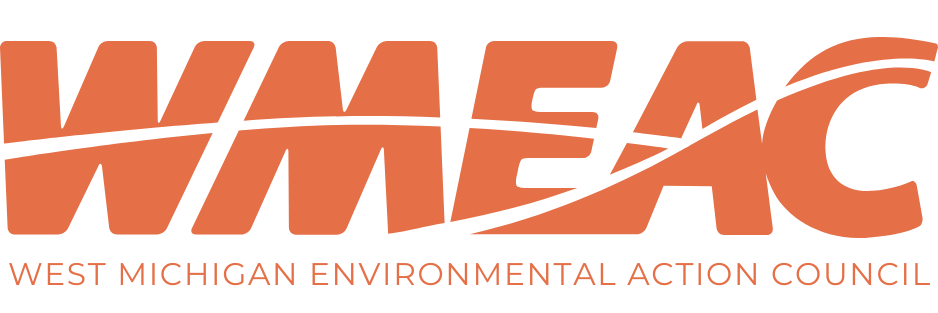Interview of Brett Little, education manager for the GreenHome Institute by Tanya Cabala, WMEAC’s lakeshore outreach organizer
As we look out into the New Year, we foresee some positive changes on the horizon for homeowners looking to make a positive impact on the environment. In 2024, the landscape of sustainable living is set to evolve, with the introduction of opportunities within the federal Inflation Reduction Act (IRA) that can advance greener homes.
The benefits of embracing a greener home extend far beyond environmental stewardship. Energy-efficient upgrades, renewable energy installations, and eco-friendly home improvements funded through IRA funds can not only reduce our carbon footprint but also lead to significant cost savings over time. Imagine a home where solar panels adorn the roof, energy-efficient appliances hum in the kitchen, and smart technologies optimize energy consumption – a residence that not only nurtures its inhabitants but also treads lightly on Earth.
We have much to learn to realize this, and Brett Little, one of our West Michigan experts on green homes, can help! Little is the education manager for the GreenHome Institute (www.greenhomeinstitute.org) a nonprofit with a mission to empower people to make healthier and more sustainable choices in their homes, located in Grand Rapids.
What is the IRA?
The Inflation Reduction Act, passed in 2022, does many things to reduce reliance on foreign energy and protect against climate risk and rising utility bills. It brings additional funds to help ensure that the home improvements needed are made with better products, reducing energy and carbon further. This is done directly through nonrefundable tax credits and/or rebates that immediately reduce the cost of more energy-efficient products from contractors or stores.
What is in the IRA that can help homeowners green up their homes?
With a myriad of items in our homes that might need replacing this year, the IRA helps improve our choices for replacement. This includes exterior doors, storm windows, electrical upgrades, home car chargers, insulation and air sealing products that improve comfort, heating, cooling, and water heating equipment, and really big ticket items like geothermal, solar, and home batteries. There is up to $3,200 per year available in nonrefundable tax credits for these items and up to $14,000 in rebates off the top starting in 2025, along with 30% tax deductions on solar, geothermal, and batteries. To a limited extent, this can be combined with utility and other programs, too, to get additional funds back.
Where is the best place to get more information, and how can the GreenHome Institute assist?
GreenHome inspectors can evaluate what is needed, how much energy and money can be saved, and areas for improving comfort and health. GreenHome inspections can also be rebated under the IRA tax credits for up to $150 and may even be free or discounted in some areas, depending on income levels or other programs available. Learn more here https://greenhomeinstitute.org/greenhomeinspection/. We also offer additional online and in-person training on these programs; sign up for our mailing list to learn more: https://greenhomeinstitute.org/mailing-list/. Finally, the federal Department of Energy also provides a resource on what is available: https://www.energy.gov/policy/articles/making-our-homes-more-efficient-clean-energy-tax-credits-consumers
What other things can homeowners do, that are easy, can save money, and contribute to sustainability?
The first thing to do is evaluate your home’s efficiency by the U.S. Environmental Protection Agency (EPA) Home Energy Yardstick. Then get a GreenHome inspection to know where to save energy and money. In Holland there is a Home Energy 101 program through the utility and city of Holland, where nonprofits come in and educate you on your home and improvements – we hope to see programs like these in more lakeshore communities.
Additional actions to take include ensuring your homes have all LED lighting, switching to Energy Star and all electric appliances and devices, implementing air sealing gaps/cracks/door sweeps, wrapping hot water pipes with foam pipe wrap, and installing low flow devices to improve home health and safety. Many utilities give away these items free or at low cost.
What questions should homeowners ask contractors doing home renovations to ensure getting the tax credits?
Ask contractors to build on a home energy audit, ask if they have been involved in green building or renovation projects or carry a green building credential and finally, ask if they understand the IRA and will try to use products that qualify for it.
Anything else?
The GreenHome Institute offers free Wednesday webinars on many green home topics, join, or watch them recorded on our website, GreenHome Institute.
Originally published in the Grand Haven Tribune.


